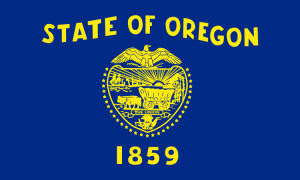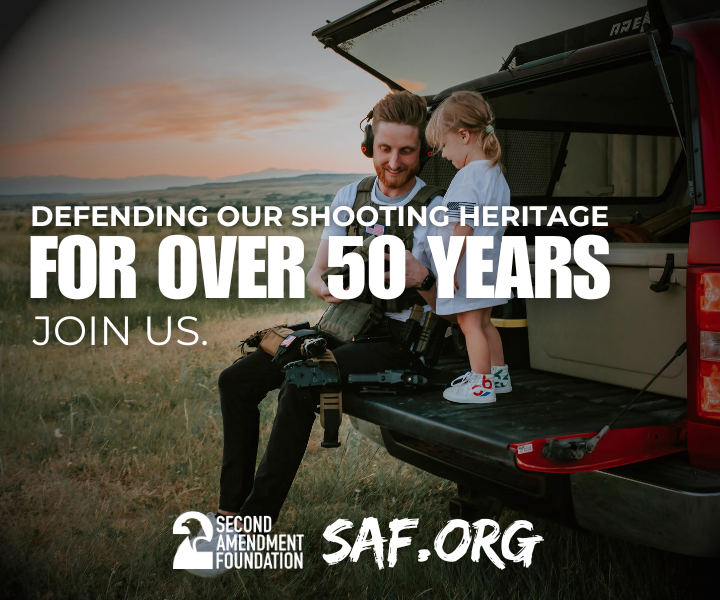by Dave Workman | Senior Editor 
Clatsop County, OR, District Attorney Joshua Marquis has publicly acknowledged that his misgivings years ago about a change in state law that expanded concealed carry via a “shall issue” statute were all wet.
In a letter to the Portland Oregonian, responding to a story that appeared in the Oct. 8 issue about the rise in concealed carry licenses, Marquis noted, “I thought it would be a disaster. I was wrong.”
The letter ironically appeared as the US Supreme Court declined to review a lawsuit in Maryland, challenging that state’s arbitrary concealed carry licensing structure that gives broad discretion to state officials to deny, essentially on a whim, permits to carry.
That law was challenged by the Second Amendment Foundation and Maryland resident Raymond Woollard, whose permit renewal was denied because he could not show “a good and substantial reason” why he should be allowed to carry a firearm for personal protection.
But the man who posed a threat to Woollard and his family perhaps provided that demonstration in September when he attacked his estranged wife and his parents. Kris Lee Abbott, who went to jail after his confrontation with Woollard in the Woollard home a few years ago, had been freed. After attacking his wife and beating his parents with a pipe, Abbott committed suicide with a gun he legally could not possess because of his felony conviction in the Woollard incident.
When the federal lawsuit was initially decided by District Court Judge Benson Everett Legg, who found the Maryland licensing scheme unconstitutional, the judge wrote, “A citizen may not be required to offer a ‘good and substantial reason’ why he should be permitted to exercise his rights. The right’s existence is all the reason he needs.”
Marquis’ letter could be a wake-up call to officials in Oregon and neighboring Washington, where concealed carry has been under attack by anti-gunners trying to exploit last year’s Sandy Hook massacre to further their political agenda. Concealed carry had nothing to do with the Newtown school shooting, or the movie theater attack in Aurora, CO, last year, but that hasn’t stopped gun prohibitionists from trying to capitalize on public outrage.
According to his letter, Marquis was “appalled by the prospect of thousands of drivers packing heat when few really needed to and the risk it would place police officers in…” But his admission that he was wrong is seen by gun rights activists as a small victory.
This is not the first time a public official has acknowledged that he was mistaken about legally-armed private citizens and how they would conduct themselves. By some estimates, there are more than eight million citizens who legally carry concealed in this country, and more than 445,000 of them live in Washington, and about half that number in Oregon. Surprisingly, there is no reciprocity between the two Northwest states in terms of concealed pistol license recognition, but residents of both states can obtain licenses from the other. Idaho, meanwhile, recognizes licenses from both states.
Here is the text of the Marquis letter as it appeared in the Oregonian and on the Northwest Firearms forum: “I have been a prosecutor in four Oregon counties over the last 30 years, the last 20 as the elected district attorney in Clatsop County in Astoria.
“In 1991, I was the chief deputy district attorney in Deschutes County in Bend, and I authored an opinion piece run by The Oregonian, in which I was highly critical of a deal made by the former House speaker, known as the ‘Katz compromise.’ “Up until then, the issuance of concealed firearm licenses varied wildly, depending on where someone applied. Multnomah County issued very few. The compromise appeased gun rights groups by making a CHL— concealed handgun license—a virtual right, so long as the applicant had no criminal record. Anti-gun activists got an extended 15-day waiting or “cooling off” period, which has been replaced by an instant online background check.
“I was very skeptical and was appalled by the prospect of thousands of drivers packing heat when few really needed to and the risk it would place police officers in dealing with newly armed people who had never received the kind of firearm training many of us in law enforcement receive.
“I thought it would be a disaster. I was wrong. Based on my experience, crimes by CHL holders are very rare and are certainly less than in the general population.
“Guns are still a very emotional issue for many, but CHL holders have not been a public safety problem.”


